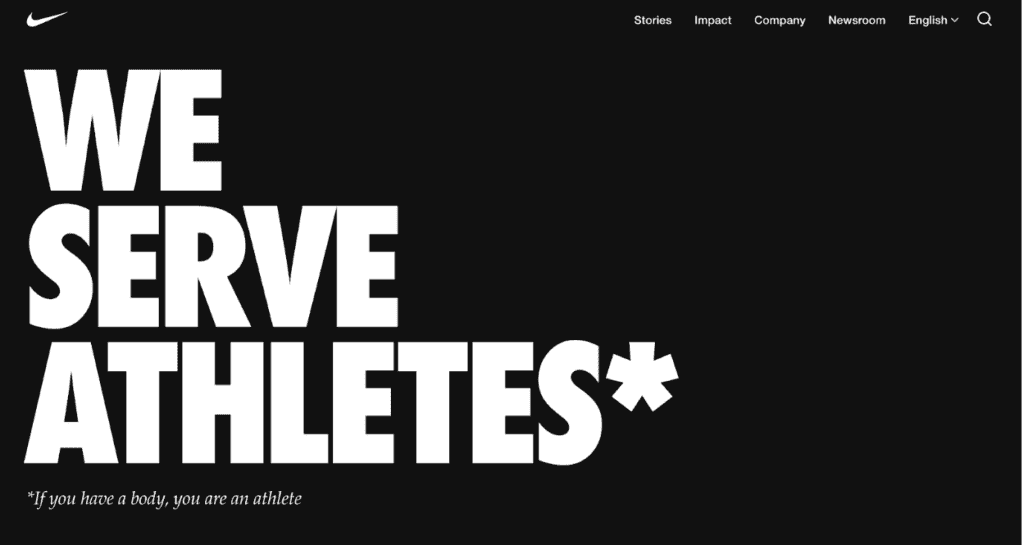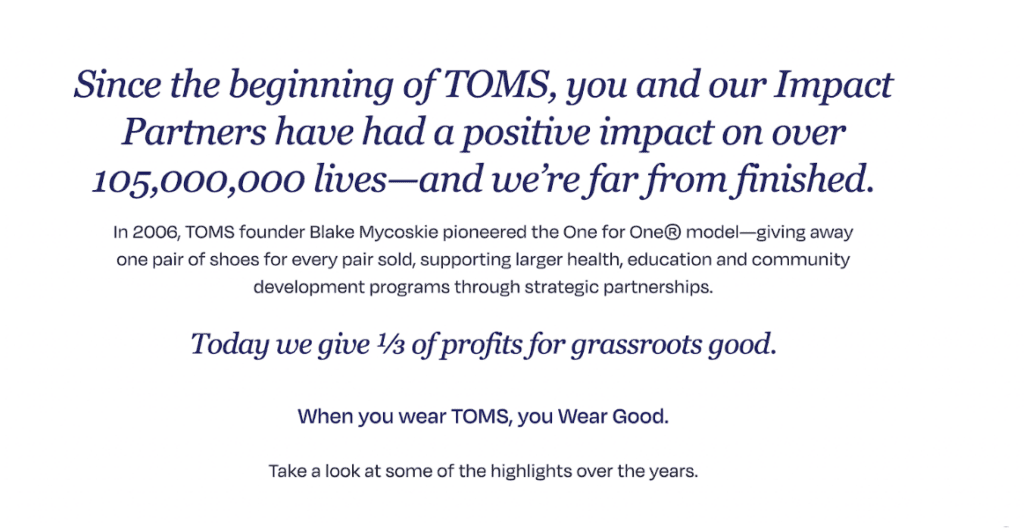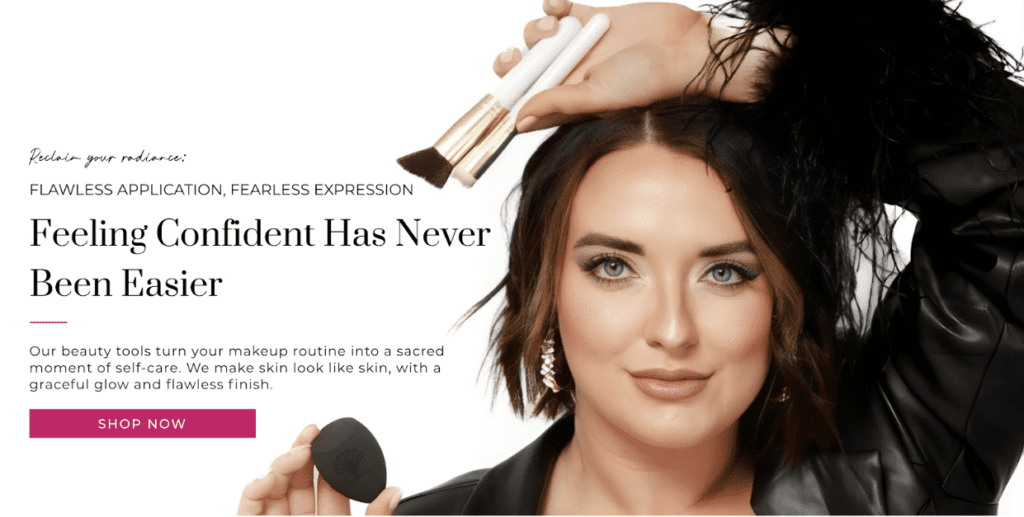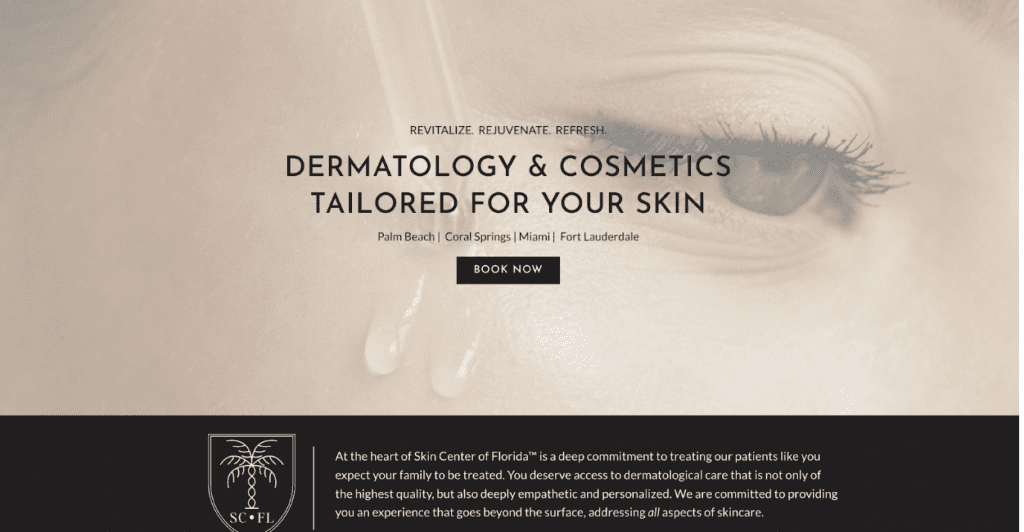Figuring out how to write a website is challenging, to say the least. You’re staring at a blank Google Doc. It’s staring back at you. You’ve been trying to write your website content for the last few hours, but nothing seems to flow. Ugh.
This struggle is common for business owners who want to write their own website, but it doesn’t have to be your reality!
In this comprehensive guide, I’ll show you how to write a website that will showcase your top-notch personality, attract potential customers, and turn them into loyal clients so you can continue to grow your business and make a real difference in people’s lives. Let’s get down to it!
Why You Need a Website as a Small Business Owner
You may be asking yourself, Do I really need a website? Maybe your social media presence is enough. You can just keep telling everyone who asks for your website link that it’s “a work in progress” forever. Right? Well, not really.
Your website builds and strengthens your brand identity. It shows that you are serious about your business and are committed to providing value to your customers. It showcases who you are, what you do, and why you do it in a way that’s MUCH easier to navigate than a social media profile.
In short, having a professional website positions you as a credible authority in your niche and allows your audience to trust you. If you don’t have a website yet, you needed one…yesterday!
Plus, your website is one of the few pieces of your marketing real estate that you actually own. Your Instagram or LinkedIn profiles aren’t actually yours. They can get shut down at any moment. But you DO own your website domain.
With proper search engine optimization and effective content (more on that later!), your own site can be a fantastic way to generate leads instead of always having to show up on socials.
How to Write Copy for a Website Without Losing Your Mind
Like what you’re hearing about the benefits of having a website as a small business owner? I thought so! Here’s the kicker, though.
Website copywriting is not easy. Creating websites takes a lot of time and energy. However, with a solid plan, you can write compelling website copy without losing your mind. Here’s a structured approach to get you started on content writing for your website!
Know Your Target Audience
You have to know your target audience like the back of your hand. Before you write a single web page for your website, you need to take a deep dive into the PEOPLE that you’re writing your web content for. Because to create effective content, you have to know exactly what they want to hear before you write even the first sentence.
Start with understanding your target audience’s demographics, such as age, gender, income, education level, and location. These details help paint a broad picture of who your audience is.
However, to truly connect with them, you need to dive deeper into their psychographics or, in other words, their attitudes, values, interests, lifestyles, and behaviors.
Psychographics reveal what motivates your audience and why they make certain decisions. When you understand your audience’s specific problems and the goals they’re trying to achieve, you can tailor your messaging to speak DIRECTLY to them.
Create Strong Brand Messaging for Your Online Business
According to research, consistent brand presentation across all platforms can increase your revenue by up to 23%. Brand messaging expresses your personality, mission, and values in a way that resonates with your clients.
Your target audience is slammed with businesses trying to sell them something every day. Your brand messaging needs to stand out in the digital world!Like real-world examples? Me too! Let’s take a look at Nike.

Nike’s brand message centers around the idea that athleticism isn’t confined to elite sports figures. It’s for everyone. This message resonates because it celebrates the potential within every individual, regardless of their fitness level, background, or physical capabilities.
Nike creates high-quality sports apparel and footwear, but they are successful because their brand messaging makes people FEEL something.
So, before you write content, get crystal clear on what your brand’s unique message is and how you can express it. Don’t forget to create guidelines for writing content and copy so that your brand messaging is consistent across all platforms!
Plan Your Website Structure
Your website needs to be strategic to effectively serve both your business goals and the needs of your visitors. You need to thoughtfully plan where you place each section and write calls-to-action (CTAs) to guide your target audience where you want them to go, whether it’s to make a purchase or sign up for your newsletter.
Every element of your website should have a clear purpose and contribute to the overall user experience. In short, you need to make your website structure make sense!
Before you create content, outline each page of your website, from home page to landing pages for programs or products. There are no hard rules on what your website structure should be because its unique to YOUR business goals.
For example, if you want more email list subscribers, you may consider creating a lead magnet (a downloadable PDF or something more interactive, like a quiz!) and including it on your home page. Or maybe you want more leads to get in touch with you, so all of your main CTAs lead them to your contact page. The bottom line is: make sure that you have a responsive website with a strategic flow!
Make It Easy to Read
Your target audience has the attention span of a goldfish. Or, to be exact, it’s 8 seconds. So, make them count!
Use active voice and short sentences to keep your paragraphs concise and to the point. Long blocks of text can be overwhelming (AKA, no one is going to read them).
Break up your content with descriptive subheadings to make it easier to scan and make sure to incorporate plenty of white space between all of your great content. When appropriate, use bullet points and other ways to make your content easier to read and, most importantly, skim.
If you’re not sure whether your website is easy to read, here’s a trick for you! Pretend that you’re a lead landing on your website and try skimming it to see how reader-friendly it is. Can you get all of the important messages from the high-level statements or do you need to read every single paragraph to figure out what’s going on? Remember, your audience has a short attention span!
Hook ‘Em with Compelling Headlines
Your section headlines should grab your leads’ attention and draw them in while communicating the most important information. As a copywriter, I know that headlines are the hardest pieces of website copy to write.
You need to be creative in your approach to make your headlines stand out. Yet, your copy should also be clear and concise so that your website visitors actually understand what the heck you’re talking about. It’s all about finding the right balance!
The key to writing good headlines is writing many of them. I’m talking 10+ variations of each headline until you land on THE ONE. By the way, did you know that using power words and action verbs can help you improve conversions by 12.7%? Well, now you do!
Tell Them a Story
The human brain is wired to like a good story. Storytelling copywriting is a powerful strategy that makes your website content more compelling and forges a stronger connection with your readers.
You can share an origin story about how and why you created your brand, client success stories to build up trust, personal stories to improve your connection with your audience, and more!
The truth is, people buy from you because your brand makes them feel something. Humans like to think that they’re rational creatures, but they aren’t. Storytelling is one of the ways you can make your target audience feel a more authentic connection to the purpose behind your brand.

For example, TOMS Shoes is a footwear company, but their story is about much more than just making shoes. TOMS is famous for its “One for One” business model, where for every pair of shoes purchased, a pair is donated to a child in need. Buying from them makes you feel good because of the company’s story and commitment to social responsibility. Storytelling in action!
Use Social Proof
Social proof is one of the best psychological tactics in marketing. Incorporate testimonials and real, relatable stories from satisfied clients and customers throughout your website content to build up trust and boost conversions.
When your leads see positive feedback from others, they feel more confident in making a purchasing decision. Social proof validates your products or services and reduces doubts and objections that your audience may have!
Understand Buyer Psychology
I have a background in therapy and am a freak for all things buyer psychology (AKA, understanding what makes people buy!).
There are known brain reactions that happen when your target audience is faced with a purchasing decision, and certain marketing strategies have been proven to tip the scales in your favor! 😉
Want an example? Enter: Fear of Missing Out, or FOMO! It refers to the anxiety or apprehension people feel when they think that others are experiencing something they are not (AKA, the benefits of your service or product).
Showing off demand for your services or products, emphasizing limited availability, and offering bonuses or discounts are all ways to make your audience realize that they will miss out on something AWESOME if they don’t invest in whatever it is you’re selling.
Optimize for SEO
Search engine optimization, or SEO, is a step that SO many “how to write a website” checklists forget about. Don’t make this mistake! When done right, SEO drivers organic traffic to your website (AKA, hot leads right to your doorstep) and positions you as a credible authority in your industry.
SEO has many bits and pieces, but here are some of the most important things to do:
- Do Keyword Research: Identify relevant keywords and phrases that your target audience is searching for.
- Optimize On-Page Elements: Include your target keywords in titles, meta descriptions, headers, and throughout your content. Wondering what a page title is? Check out these SEO terms for beginners!
- Include Internal Links: Link to other relevant pages on your website to improve user navigation.
- Start a Blog: Regularly publish high-quality and SEO-optimized blog post content. If you don’t want to write your blog posts yourself, learn more about our SEO blogging service!
Some website builders make it easier to optimize for search engines than others. For example, Showit is an example of an SEO-friendly website builder!
Be Creative!
Writing your website content is an exercise in self-discovery. It forces you to stop trying to copy everyone else and embrace your own unique personality.
Get creative and let your unique voice shine through in your content. This makes your website stand out!
Don’t be afraid to try new things and stay authentic. People appreciate honesty and transparency.
How to Write a Website Examples
Want to see examples of great website content? I got you! Here are five examples of high-converting & psych-infused websites. Want to know a secret? I wrote them!
Revival Beauty Tools

Revival Beauty Tools is a beauty company that creates tools that don’t mask but magnify your God-given beauty. Their mission is to empower you to feel beautiful, powerful, and revived every single day.
When the Founder, Noel Walker, reached out to me, she struggled to articulate the essence of her brand beyond the product itself. She knew that what she created was about more than just high-quality makeup tools, but she didn’t know how to express her brand story in a way that truly resonated with her target audience.
I crafted unique and purposeful messaging for Revival Beauty Tools, highlighting Noel’s story as well as stories of countless of women who feel frustrated with their beauty routines and wanted something different. The result? On her launch day, Noel sold 400+ beauty tools and made her entire website copy investment back.
Skin Center of Florida™

Skin Center of Florida™ offers dermatology and cosmetics services tailored for your skin. An established practice founded in 1989, Skin Center of Florida™ reached out to me as they were going through a period of transition. They had a new owner, were opening new locations, and needed their brand messaging to be clearer and stronger than before.
After working with me, Skin Center of Florida™ launched a new website that reflected their authority and experience in the field and were able to successfully launch their new location! Plus, their new website was now optimized for SEO, which brought a new stream of clients to their doorstep.
Desi Tax Service®

Desi Tax Services® is a successful tax & accounting firm, but their website was too “buttoned up” for the small business owners and individuals they serve. The Founder, Desi, wanted her brand messaging to be more approachable and easy to understand. Plus, she wanted her website content to be optimized for SEO!
Within the first 5 days of launching the new website, Desi received 5 new inquiries. She used the messaging we created on her social media and email marketing channels, and got 20 more leads. Most importantly, Desi felt aligned with her new messaging and proud every single time she looked at her website!
Want results like this and tired of searching for articles on how to write a website? Learn more about our copywriting services!
FAQs
How to Write an About Me for a Website?
Writing an about page for your website is so hard! You want to tell your brand story, but finding the right words feels impossible. The truth is, an about me page should combine both content about you AND content about your target audience. It should bridge the gap between your brand and your audience. An about page is a great place for sharing your mission and origin story, but you should do it in a way that doesn’t feel self-centered. Instead, it should reflect what your customers are interested in and want to hear!
How to Write a Privacy Policy for a Website?
Ah, asking the hard questions! A Privacy Policy should explain how you collect, use, and protect visitor information. Explain how the collected data will be used, whether for marketing purposes, improving user experience, or other functions. To be honest, the best course of action is to get a Privacy Policy template from a lawyer instead of writing your own from scratch.
How Much Does It Cost to Start a Website?
The answer to this question depends on so many different factors! At the very least, you can expect to pay for your domain registration and website builder. However, most business owners also need to invest in brand photography, a website designer, and a copywriter. On average, you can expect to spend anywhere from $3,000 to infinity for a professional website!
How Many Pages Should a Good Website Have?
There’s no hard rule, but you website should have as many pages as it takes to cover all necessary information while staying free of fluff. Typically, most small businesses need static pages like home, services, about, and contact. You should also consider starting a blog page and regularly publishing new content on it to improve your SEO rankings and show up in Google search results.
How Long Does It Take to Write a Website?
It depends on your process! Some small business owners spend months trying to write their website copy themselves to no avail. Others can write it in just a few days. When you work with me, you can expect your website copy to be delivered to you in ~3 weeks!
Should I Write My Website in First Person?
It depends on the nature of your business! If you’re a solopreneur or a personal brand, it makes sense for your website to be in first person. If you have a team or a running a large business, your website should be in third person. That said, you can still use first person on some pages of your website, such as your about page. Overall, it varies from business to business and depends on what kind of a connection you want to establish with your target audience.
Can Anyone Write a Website?
Sure, anyone can write a website, but it’s not going to be a very good one! The truth is, writing website content is a specialized skill that requires a deep understanding of the human psyche, buyer psychology, and, of course being good with words. If you’re ready to stop DIY-ing and start seeing results, learn more about my copywriting services!
Hire a Copywriter and Stop Asking Yourself “How to Write a Website”!
Writing websites is hard work that comes with A LOT of pressure. A copywriter can help you express your authentic brand in a way that resonates with your leads, optimize your website for SEO, and set you up for success.